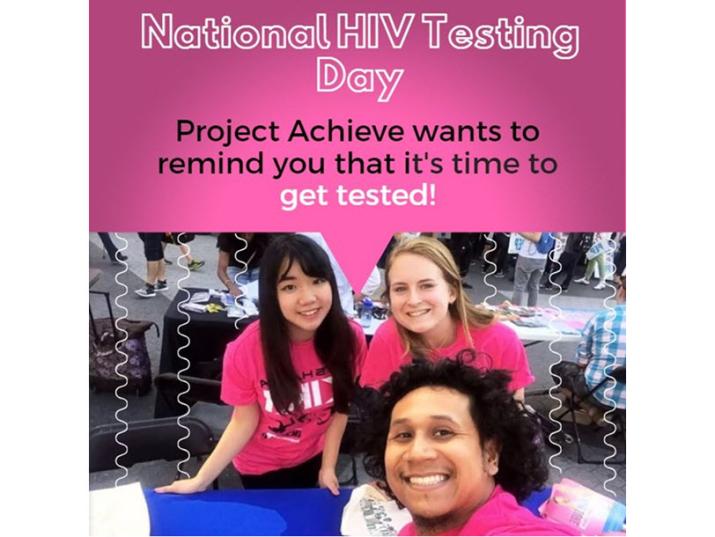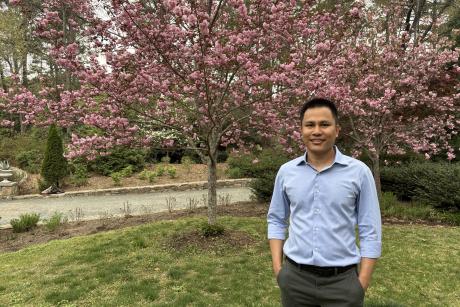
Project Achieve NYC interns and recruitment staff (including Evi, top right) attend National HIV Testing Day in Union Square. PC: @projectachievenyc (Instagram).
Published July 3, 2018, last updated on July 5, 2018 under Voices of DGHI
By Evi Alexopoulos, rising junior biology and global health major
When I first began my search for an experiential learning opportunity, I pictured myself traveling to a rural part of a low-income country—interacting with a community I had never experienced before, addressing a global health conflict firsthand, and immersing myself in a new culture. Never did I expect to find all these experiences an hour away from my home.
While many of my peers travel to all parts of the globe to fulfill their experiential learning, I engage in a daily commute on the Metro North, to the Upper East Side of Manhattan.
The office and lab space of Project Achieve, where I’m an intern, take up a small corner of the New York Blood Center, a large non-profit centered around blood donations and clinical research. Project Achieve is a team specializing in behavioral and biomedical HIV trials—researching everything from potential vaccines to the social factors that affect adherence of medications.
I have taken classes on the history of HIV and the in-depth mechanisms of the virus itself. And I’ve assisted in research at DGHI that explored factors affecting HIV self-testing in Zimbabwe (a study led by the amazing Professor Kearsley Stewart and her teaching assistant, Master of Science in Global Health alumna Crissi Rainer).
These experiences equipped me with meaningful knowledge. These experiences did not prepare me for working in a bustling clinical research lab. I am constantly engaged in diverse tasks, whether it’s talking to participants waiting for an infusion, counting medications for the research nurses or developing lists of social services available for high-risk women. I have shadowed the nurses in the lab for participant visits and become acquainted with our participants, many of whom have vastly different life experiences from me. As a heterosexual white woman living in the suburbs of New York City, I never spent time interacting with the multitudes of cultures (most prominently black and Latinx) and communities of individuals with varying sexualities.
Through Project Achieve, I have witnessed HIV as a virus that preys on the most marginalized in society and I understand that it is more of an aggregation of complex social issues than most people care to admit. As participants from the Bronx, Brooklyn, lower Manhattan and more flood into our clinic every day, my thinking about HIV has altered.
I am extremely motivated by my Project Achieve co-workers who devote their time to a cause that actively fights the unceasing stigma associated with HIV and will ultimately save lives through advanced medical and behavioral interventions.
My train ride home at 5pm every day gives me time to reflect on my day. What I’ve gathered on a basic level is: students often expect a need to travel far and wide to find the most pressing issues in the field of global health. This is not true. Global health epidemics and issues are lurking everywhere. As future members of the WHO, Doctors Without Borders, future PI’s of clinical trials and cancer research (the list goes on and on), we have a responsibility to listen to the most affected communities.
Modern global health problems call on us to pinpoint the moment when social neglect and discrimination of certain populations permit diseases and viruses to have the upper hand. As students preparing to enter this field, it is at this precise moment we need to interfere.


